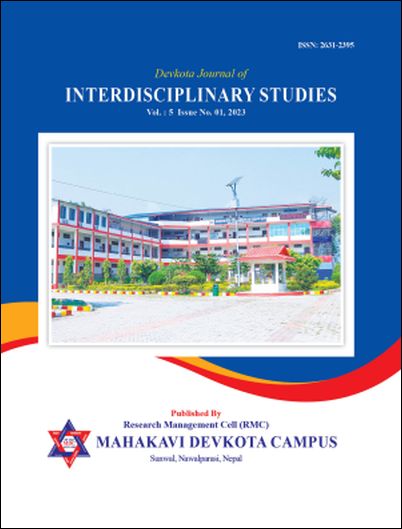Analyzing the Role of Employee Recognition in Job Retention within Nepal’s Banking Sphere
DOI:
https://doi.org/10.3126/djis.v5i1.61779Keywords:
Admiration, Job Turnover, Institutional Framework, Financial EntitiesAbstract
This study aimed to investigate the association between intrinsic and extrinsic recognitions and employees’ likelihood of remaining employed within their organization. The research design employed was descriptive and correlational in nature. A comprehensive analysis was conducted on a survey comprising 385 participants, wherein respondents were systematically classified based on variables such as gender, age group, educational attainment, and occupational status. This approach yielded valuable and profound findings. The study revealed that although the significance of training and development opportunities was relatively low, a majority of employees considered financial compensation as the primary determinant influencing their retention within the banking institution. Furthermore, a notable association was observed between the inclination to remain employed and receiving acknowledgment, whether it be in the form of external rewards or internal satisfaction. Respondents explicitly identified incentives and appealing compensation packages as determinants that would augment their inclination to remain in their present roles. Hence, it falls upon the human resources department to assess and ensure the adequacy of the rewards bestowed upon employees in order to meet their satisfaction. This study underscores the importance of managers possessing a comprehensive understanding of the significant impact that offering promotions and competitive pay scales can have on employee retention. The study concludes by suggesting a redesign of the banks’ acknowledgment programmes and emphasizing the importance of giving equal weight to both types of recognition in order to enhance employee retention.




